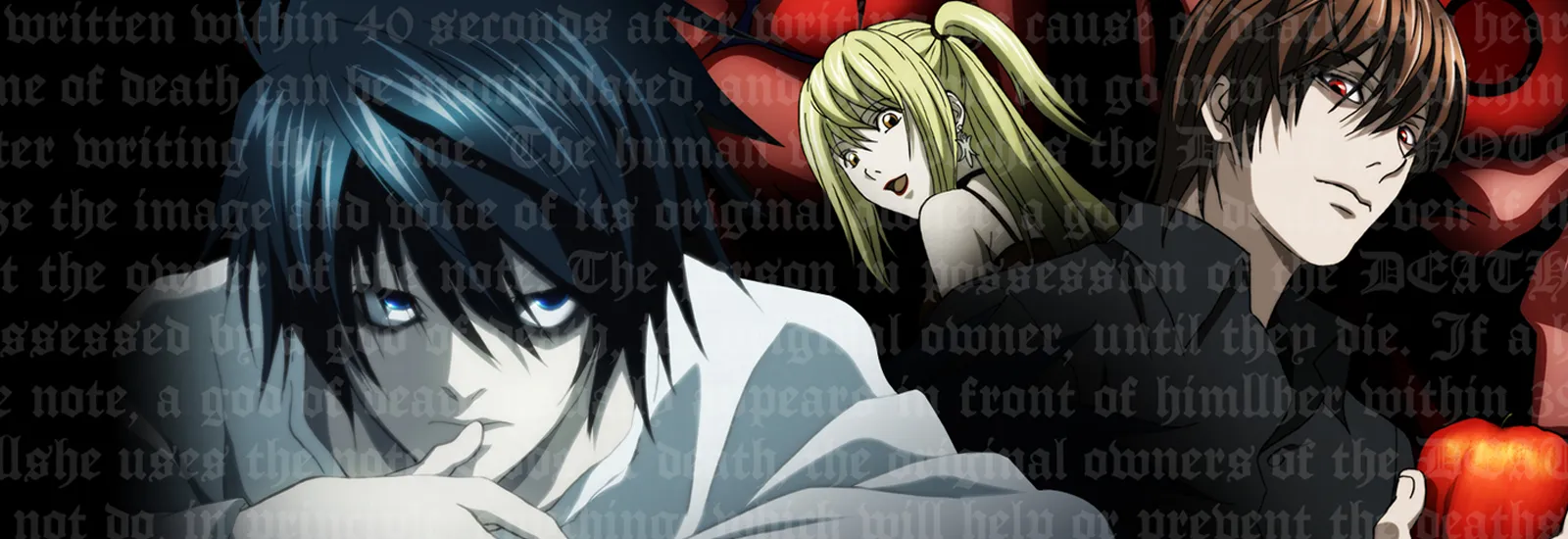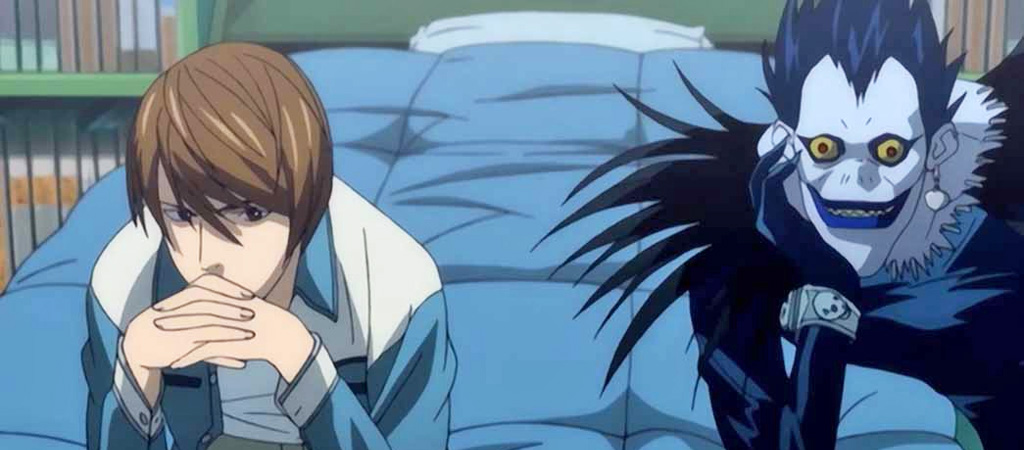
The streaming services continue to crank out fresh content during the pandemic, although the faucet has undeniably slowed on cable and network TV. Never fear, this can be a time of exploration and stepping outside one’s comfort zone. Take, for example, Jim Belushi’s recent social media inquiry. The weed connoisseur and Blues Brother sought anime recommendations on Twitter and received a lot of cannabis jokes in response. However, he also received genuine suggestions, which were rad. Hopefully, he’s enjoying some of those shows because, honestly, there are so many different Japanese anime genres that I believe anyone who is willing can find something to dig.
Jumping over that initial hurdle requires some effort because, let’s face it, knowing where to begin with anime TV can seem intimidating (movies are a little easier because Studio Ghibli is a slam-dunk starting point if you wanna go there). Many of these shows arrive with frenetic promos, spiky-haired characters, cosplay-enthusiast fans, and, yes, the subtitles. That’s where we’re attempting to provide some insight: with suggestions on accessible series that might appeal to you, based upon similarities to live-action series. Don’t expect us to get precious about dub (dubbed voices) versus sub (subtitles) here. Nope, we’re not gonna nerd out that much but, instead, we shall focus on the stories and characters that we think you might enjoy and, hopefully, bingewatch.
Here we go with our first suggestion, Death Note (2006, Viz Media), all 37 episodes of which are streamable on Hulu, HBO Max, Netflix, and the king of all anime-stacked streaming services, Crunchyroll.

What Death Note is about: They say that boredom kills, right? Well, in this series, the sentiment lives, literally. A bored god of death (a Shinigami) named Ryuk seeks amusement by visiting Earth and dropping a mysterious notebook into a Japanese schoolyard. A bored 17-year-old genius, Light Yagami, sees the projectile fall to the ground and cannot resist checking it out. He also cannot resist making use of the notebook’s purpose once he reads a few initial rules that are scribbled within its confines. Here’s how those rules boil down:
– The Death Note notebook has the power to kill any human whose name is written in the note.
– The writer must envision the person’s face while writing his or her name. This prevents the death of, say, the wrong John Smith; it also requires that the writer must know the true name of the person they wish to kill.
– The cause of death may be specified, and if no specification is made, the target will die from a heart attack.
– The Death Note cannot kill a Shinigami.
– The writer won’t be punished in the afterlife for using this book, though he will be prohibited from entering both Heaven and Hell.
As one can guess, Light kills once and finds that (much like with a can of Pringles) once he’s popped that top, he just can’t stop. He initially justifies his actions by thinking of himself in vigilante terms: if he kills a criminal and stops one crime, why not kill all criminals? He even manages to directly save a woman who almost certainly would have been raped, if he had not intervened with the notebook. Convinced that he’s doing good and creating a new world, for which he aims to eventually be a god, Light starts knocking off known convicted criminals, too. Soon enough, the bodies start piling up along with plentiful news coverage (all of those mysterious heart attacks don’t make sense) of a figure that becomes known as “Kira.” And law enforcement starts digging into matters with the help of an enigmatic detective, known only as L. That’s when the cat-and-mouse war of wills begins, and it’s a testament to the writing on this series that the dynamic between Light and L. never grows tiresome, despite spanning dozens of episodes.
The story remains quite simple — both L and Light are attempting to figure out each other’s identities while dancing too close to their opposing flames. In L’s case, he obviously wants to bring a serial killer to justice. In Light’s case, he wants L’s name, so it can go in that Death Note. It might seem like I’m giving away too much, but rest assured that endless twists arrive to make these tasks increasingly difficult for both figures.
What’s so brilliant about how this is handled: This is no mere cat-and-mouse game but essentially a Greek tragedy, one that’s reminiscent of that famous quote — “power corrupts, and absolute power corrupts absolutely” — from Sophocles’ Antigone. And there’s not much more of an “absolute power” than being able to kill scores of people by simply scrawling a name in a notebook. Strangely enough, though, this story manages to paint Light as both ruthless and vainglorious as it does to frame him as both godly and… likeable. Who among us hasn’t imagined, even for a moment, that the world might be a better place if truly evil figures never existed? One can sympathize with Light’s initial perspective, and then his mindset slides off the rails in many ways.
As fascinating as Light is, L manages to be even more charismatic. He, too, enters the story as a “bored” character, but his intelligence is almost breathtaking, and it’s a thrill to watch his mind work. There’s also no downsides to his agenda or how he maneuvers, either, which makes it ever more difficult for the audience to wrestle with how one will cheer on Light every time he slips through L’s fingers. It says a lot that I wouldn’t mind having a cardboard standee of the blue-haired L in my office, and yet, I still rooted for Light for a great deal of the show’s runtime. Still, L’s a different type of detective than most people have witnessed on TV, and Death Note created this character out of respect for an audience’s appreciation of brilliance and taking no shortcuts on the way to a goal.
Meanwhile, Ryuk is a blast. He’s a total pain in the ass to Light, but he’s truly an amusing spectator to behold once he unleashes that Death Note and remains invisible to all humans except for Light. Yes, he’s like the Devil on one’s shoulder, but more like a jester, since Light’s definitely acting of his own accord. Ryuk is also bound by the Death Note’s rules, so he cannot intervene, but watching his apple-chomping antics and sheer glee at the story unfolding before him makes him part of the audience. The show pulls this feat and every other turn so believably, that this feels like a superior live-action show, so yes, it is an excellent starter series into one’s anime adventure.
Those Live-Action Parallels: Obviously, there are heavy Dexter vibes at work. Not to give too much away here, but here, we’ve also got a serial-killer who grows very close to the very law enforcement members who are investigating all of the murders he commits, and he attempts to game things for his advantage. Also, he’s got a dangerous girlfriend, who’s making things better or worse for him at every turn. Yet I assure you that this show does not end up in lumberjack-land in the series finale. Granted this series could have eventually gone somewhere comparably unsatisfying, had it drawn on for as many episodes as Dexter, but the powers that be made sure that Death Note stayed tightly plotted while packing an almost absurd amount of twists within its 37 episodes. The ending is as satisfying as can be, given that the story needed to end to stay great.
Killing Eve also pops up very quickly as a frame of reference because things go further than a mere cat-and-mouse game between Light and L. It’s more like a cat-and-lion game, and I won’t say who’s the lion, but very clearly, both Light and L are dangerously obsessed with their target while also, ever-so-secretly, respecting the hell out of each other, too. Likewise, there’s some dark humor in this show and a cast of oddball supporting characters to drive both Light and L up the wall. Come to think of it, Ryuk feels like an amalgamation of the mentor characters from Killing Eve, so let that be further incentive to dig into this wild and intriguing chess game of a show.
A word of warning: Do not feel tempted to watch the live-action Netflix movie. That adaptation stars Lakeith Stanfield as L and Willem Dafoe as Ryuk, and it manages to ruin a fascinating story in about 1 hour and 45 minutes. The film is dumbed-down and Western-ized (insultingly so), and Light (Nat Wolff) loses all of his layers. He’s simply a personality-free killer, and it doesn’t work. I hate to ruin my encouragement of pursuing the anime series by pointing you toward the trailer for the movie, but please, only regard this as an example of everything that could have gone wrong with the premise of Death Note, which is handled magnificently by the Viz media anime series. In other words, laugh at this movie trailer and then stream the TV show instead.
‘Death Note’ is currently streaming on HBO Max, Hulu, Netflix, and Crunchyroll.
